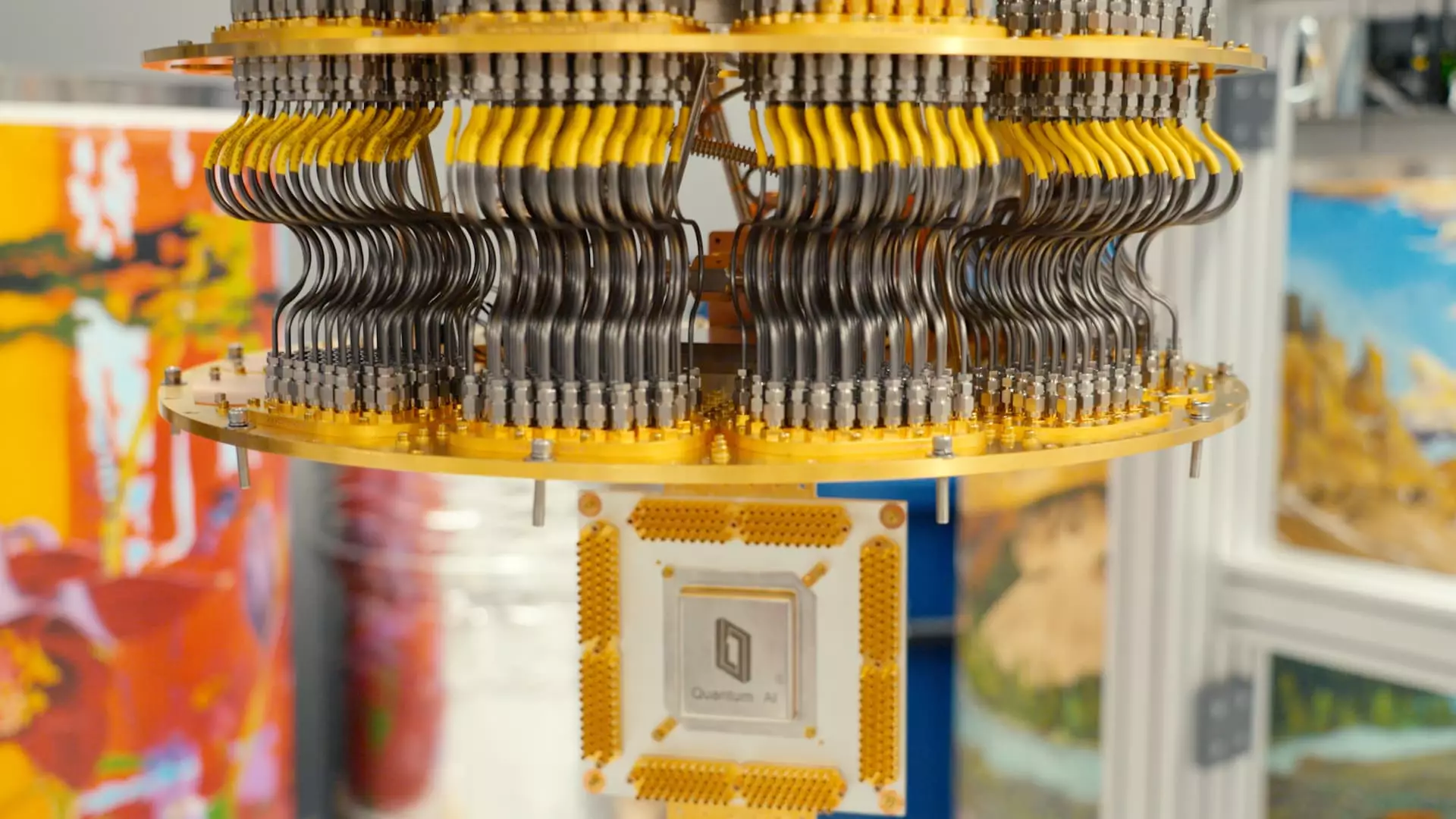Nestled within the serene landscapes of Santa Barbara, California, lies a collection of discreet buildings housing a team of pioneering scientists from Alphabet. These researchers are not merely pushing the boundaries of technology; they are embarking on a quest to redefine quantum computing. As the director of hardware at Google Quantum AI, Julian Kelly notes the potential synergy between Quantum and AI, suggesting a revolutionary partnership poised to transform our interaction with technology. This ambitious endeavor is critical, especially in an age where competition in technological innovations is fierce.
The Race for Quantum Supremacy
In the court of public perception, Google has often been accused of trailing behind competitors, particularly after OpenAI’s meteoric rise powered by ChatGPT in late 2022. However, Google’s response has been anything but passive. With the unveiling of the Willow quantum computing chip, the company positions itself at the forefront of the next technological breakthrough. Willow is not just another entry in the growing field of computing; it is designated to address complex problems far beyond the reach of classical computers. The addition of quantum bits further decreases errors proportionally, marking a significant milestone acknowledged by experts like John Preskill from Caltech. The radical promise of Willow infuses Google’s ambition with renewed vigor.
Generating Data: The Quantum Advantage
As the landscape of Artificial Intelligence becomes cluttered with challenges—especially the impending scarcity of high-quality data—Google’s quantum computing initiative presents a glimmer of hope. The traditional data reservoirs are rapidly depleting, prompting an urgent need for innovative solutions. Kelly’s insight into the potential of quantum computers to create new, valuable data underpins the logic of this venture. For instance, he references AlphaFold, Google DeepMind’s groundbreaking AI model that won the 2024 Nobel Prize in Chemistry, highlighting how it operates on data influenced by quantum mechanics—a rarity in AI models.
This focus on generating data could usher in not only a resurgence in AI training but could also accelerate advancements in scientific research. Imagine a scenario where quantum computers produce data that enhances AI models, thus augmenting our understanding of complex scientific phenomena. By acting as a catalyst for generative data, Google’s quantum initiative could well pave the way for unprecedented discoveries.
The Vision Ahead: A Five-Year Horizon
Kelly’s estimation that Google is merely five years away from achieving breakthroughs in practical applications of quantum computing exemplifies a forward-looking stance that resonates with those eagerly anticipating the future of technology. If the predictions hold true, we stand on the precipice of a transformative age where quantum technologies could redefine industries and elevate human capability. The importance of their work transcends simple computation; it holds the potential to revolutionize how we approach and resolve intricate challenges, from molecular biology to complex environmental modeling.
As Google ventures deeper into the realm of quantum computing, the implications for AI and various scientific fields are profound. This overlap between computation and understanding could give rise to tools and solutions previously thought impossible, impacting not just technology, but society at large in ways we have yet to fully comprehend.

